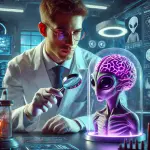Trinitarian Big History? Yes, indeed.
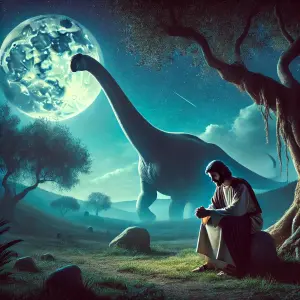
In this Patheos series on Big History, I’ve asked our big historians to chronicle and interpret leaps in consciousness (Voegelin 1956-1987). Preferring the term cosmic history so as to include the universe beyond planet Earth, I’ve been asking big historians to include in our human story accounts of consciousness-of-consciousness right along with experiences with transcendence (Peters 2017).
This is what Chris Barrigar does with Trinitarian Big History. The Rev. Dr. Chris Barrigar is pastor of the Church of St. Mark & St. Peter in Montreal. After studying the evolution of religion along with the Cognitive Science of Religion (CSR), he has developed his own Theistic Big History, alternatively called Trinitarian Big History. Barrigar contends that the long story of evolution conditioned the human brain to search for transcendent reality. He further contends that God has responded to our disposition toward transcendence with special revelation. I like this.
Is evolution responsible for Homo religiosus? Sensus Divinitatis?
We humans ask the question: what is beyond? God answers: I am who I am. Does this mean we are born with a disposition to scroll through Google searching for the divine?
Reformer John Calvin certainly thought so. We have an inborn sensus divinitatis, he said. “As experience shows, God has sown a seed of religion in all” of us (Calvin 1960, I,iv,1, 47). Homo sapiens are Homo religious.

Barrigar contends that evolution made us this way. We have evolved with neural transcendence-positing dispositions or NTDs (Barrigar 3/2024, 49). “The human brain has evolved to produce a plenitude of transcendent-being beliefs – gods, goddesses, demi-gods, ancestor-spirits, nature-spirits, and so on? I will call this the question of metaphysical ambiguity (or equally, metaphysical plurality)” (Barrigar 3/2024, 47). Each theistic big historian must ask this theological question: “Why would God produce a system with such incredibly diverse features as we find in the world’s religions?” (Barrigar 3/2024, 47) No answer. Yet, Barrigar observes that this metaphysical ambiguity readies the human brain to receive special revelation from the true God.
In a previous Patheos post, “The God Question in Cosmic History,” I noted how the big historian does not routinely ask theological questions. Religion? Yes. Theology? No. The theological question is ruled out at the level of presupposition
“My presupposition is that all religious, spiritual and occult beliefs and experiences are natural – not supernatural – and that this is the sense in which they should be investigated” (Gustafson, Lowell; Barry Rodrique, and David Blanks, eds 2023, 14)
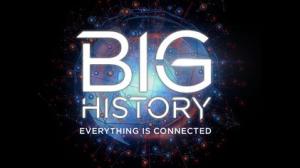 The big historians we have come to know and love are comfortable ignoring the transcendental experience within the history of human consciousness. That is why I turn to cosmic history. Here we can include within evolutionary history the human experience of transcendence, even the experience of special revelation from God. This is why I so appreciate Chris Barrigar’s Trinitarian Big History right along with the pioneering work of Karl Jaspers (Jaspers 1953) and Robert Bellah (Bellah 2017).
The big historians we have come to know and love are comfortable ignoring the transcendental experience within the history of human consciousness. That is why I turn to cosmic history. Here we can include within evolutionary history the human experience of transcendence, even the experience of special revelation from God. This is why I so appreciate Chris Barrigar’s Trinitarian Big History right along with the pioneering work of Karl Jaspers (Jaspers 1953) and Robert Bellah (Bellah 2017).
Trinitarian Big History derives from special revelation
Evolution may account for our NTDs, but not for our knowledge of the trinitarian God. As a spokesperson for Trinitarian Big History, Barrigar attributes Christian belief not to evolution but rather to special revelation in Jesus of Nazareth. “It is by incarnation and resurrection, not by cognitive evolution, that we are able to identify and be in relationship with the God to which our evolved NTDs point us” (Barrigar 3/2024, 51).
Conclusion
I have been recommending that we tell the cosmic story as big historians would tell it, but with more. We should begin with Big Bang and follow the story through evolution into human history, to be sure.
When we get to the human chapter within the larger evolutionary story, however, we should look for leaps in consciousness that readied our ancestors for asking questions of transcendental import. Then we ourselves should ask the kinds of questions Chris Barrigar asks within his Trinitarian Big History. Does God answer such questions?
Only if God answers can we theologians justify telling a cosmic story in which all things are oriented to the ultimate God of grace?
Patheos SR 5060 BH10 Trinitarian Big History: Chris Barrigar
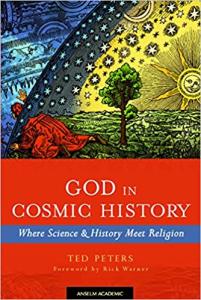
Patheos SR 5051 BH 1 Science, Religion, and Deep Time
Patheos SR 5052 BH 2 Science and Religion in Big History
Patheos SR 5053 BH 3 Teilhard and Big History
Patheos SR 5054 BH 4 What is history in Big History?
Patheos SR 5055 BH 5 God in Cosmic History
Patheos SR 5056 BH 6 Big History and Evangelical Theology: Roger Olson
Patheos SR 5058 BH 8 Big History, Religious Naturalism, and Ursula Goodenough
Patheos SR 5059 BH 9 Big History and Progressive Christianity: Thomas Lindell
Patheos SR 5060 BH 10 Critique of Ted Peters by Mitchell Diamond
▓
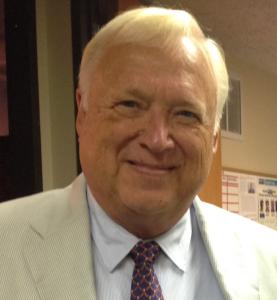
Ted Peters pursues Public Theology at the intersection of science, religion, ethics, and public policy. Peters is an emeritus professor at the Graduate Theological Union, where he co-edits the journal, Theology and Science, on behalf of the Center for Theology and the Natural Sciences, in Berkeley, California, USA. His book, God in Cosmic History, traces the rise of the Axial religions 2500 years ago. He tackled the implications of genetic innovation for the future of humanity in Playing God? Genetic Determinism and Human Freedom? (Routledge, 2nd ed., 2002) as well as For the Love of Children: Genetic Technology and the Future of the Family (Westminster/John Knox 1997). His essays are collected in Science, Theology, and Ethics (Ashgate 2003) The Voice of Public Theology (ATF 2023).
Recently Ted edited The Promise and Peril if AI and IA: New Technology Meets Religion, Theology, and Ethics (ATF 2025). Along with Arvin Gouw and Brian Patrick Green, he co-edited the new book, Religious Transhumanism and Its Critics hot off the press (Roman and Littlefield/Lexington, 2022). His fictional spy thriller, Cyrus Twelve, follows the twists and turns of a transhumanist plot.
Visit Ted Peters’ website, TedsTimelyTake.com.
▓
References
Barrigar, Chris. 3/2024. “Evolutionary Accounts of Religion within a Christian Account of Big History.” Perspectives on Science and Christian Faith 76:1 `35-54. DOI: https://doi.org/10.56315/PSCF3-24Barrigar.
Bellah, Robert:. 2017. Religion in Human Evolution. Boston: Harvard University Press.
Calvin, John. 1960. Institutes of the Christian Religion, 2 Volumes. Louisville KY: Westminster John Knox.
Gustafson, Lowell; Barry Rodrique, and David Blanks, eds. 2023. Science, Religion, and Deep Time. London: Routledge.
Jaspers, Karl. 1953. The Origin and Goal of History. London: Routledge.
Peters, Ted. 2017. God in Cosmic History: Where Science and Big History Meet Religion. Winona MN: Anselm Academic ISBN 978-1-59982-813-8.
Tillich, Paul. 1955. Biblical Religion and the Search for Ultimate Reality. Chicago: University of Chicago Press.
Voegelin, Eric. 1956-1987. Order and History, 5 Volumes. Baton Rouge LA: Louisiana State University Press.




